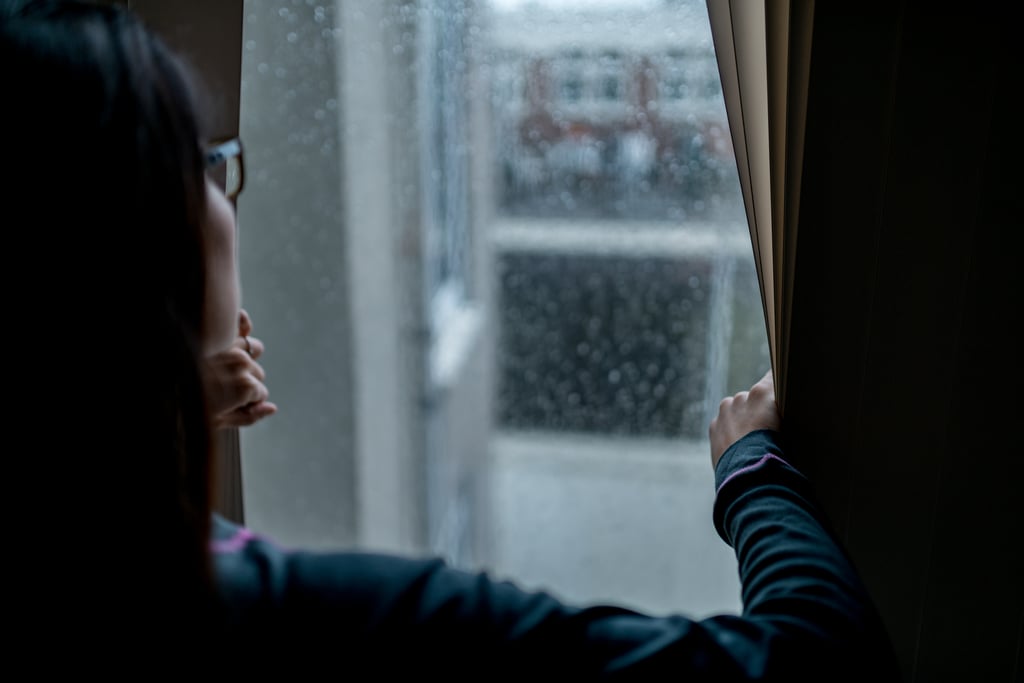We Asked Young People Why They've Gone to Therapy
14 Young Women on Why They Chose to Seek Therapy, and What They Learned From It

After my great grandmother died when I was 10, in the quiet moments, I found myself obsessing over the weighted unknown of our lives and the prospect of death. I'd stay up at night with my palm pressed to my chest, making sure I could feel my heartbeat. Was this dark stuff for a fifth grader? Sure. My parents grew concerned, and they signed me up for therapy. I only went for about a year or so, and I don't remember much about the experience besides drawing diagrams with coloured pencils and sitting on a couch that seemed too big for my body. I do remember, though, that we rarely talked about what I'd been ruminating over in the first place.
I recently made the decision on my own to go back to therapy almost 15 years later for similar and unrelated reasons I won't get into. I'm a young adult now with a career and more independence, and getting into the flow of talking to someone — and paying out of pocket myself — has been a process. It's awkward to speak a stranger about the way your mind works, past relationships, and daily stressors, but I'm sure that in the long run, even if I don't feel it right away, therapy will be useful for my mental health.
Alyssa Mancao, LCSW a licenced mental health therapist in California who offers, among other things, services for young adults, told POPSUGAR that you can be at "any stage or age in life and still benefit from working with a mental health professional" because it'll help you "develop a better understanding of your internal world and will teach you the skills to manage the difficulties that you're experiencing." But, for teenagers and those in their 20s specifically, talking to a therapist is something she recommends. Those years, she explained, "are a time of coming into yourself and learning how to develop healthy relationships and set boundaries. A licenced mental health professional is a great resource for learning to identify and develop healthy relationships, as well as learning to step into your most authentic self."
Marline Francois-Madden, LCSW, a licenced clinical social worker in New Jersey, agreed. "Some of the stressors I've seen teens experience dealt with feeling isolated even in social settings, societal pressure to know their post-secondary education plans, difficulties with manageing their emotions when dealing with high stressors, and not having a safe space to just talk about their feelings," she said. "With deaths by suicide being the second leading cause of death for teens, it's important for adults to recognise some of the warning signs and be proactive with having teens see a therapist."
As for young adults, some have come to her due to a lack of work/life balance, imposter syndrome, "unresolved childhood traumas that impact their relationships, and comparing their life to those on social media," she said. It's common, she added, for people in this age group to struggle with setting boundaries with family, friends, and employers, and they can also overextend themselves, stretching themselves too thin.
POPSUGAR wanted to get insight from young people who either went to therapy in their teens, went in their early 20s, or go now. Talking to someone who has an outside perspective can feel strange, but it's often helpful for working through problems both big and small. Ahead, check out what 14 women had to say about why they chose to seek help and what they got out of therapy.
Meredith, 21, Started Having Panic Attacks at 15

Alexa, 24, Realised She Was Suicidal at 20

Sam, 24, Started Going While in a Toxic Relationship

Halle, 24, Goes to Manage Her Anxiety

Julia, 28, Started Therapy at 19 For Body Dysmorphia

Melissa, 24, Started Therapy Last Year Due to Family Issues

Devon, 23, Goes For Waves of Depression and Anxiety

Brittany, 27, Is Such a Therapy Advocate That She's Gotten Her Friends to Go

Meghan, 24, Went For Anxiety

Natasha, 24, Struggled With Anxiety Transitioning to College

Sierra, 23, Was Dealing With Her Parents' Divorce

Maddy, 22, Went For a Past Panic Disorder

Laura, 23, Wanted to Find Clarity Amid Chaos

Anneke, 23, Went Growing Up to Deal With an Emotionally Abusive Relationship









